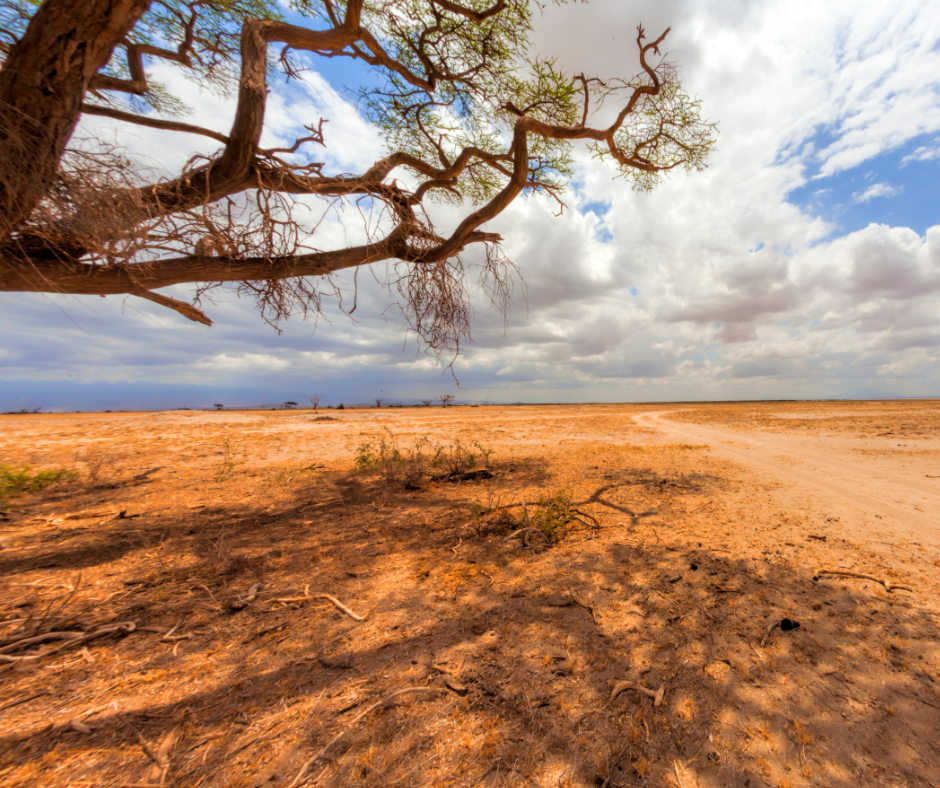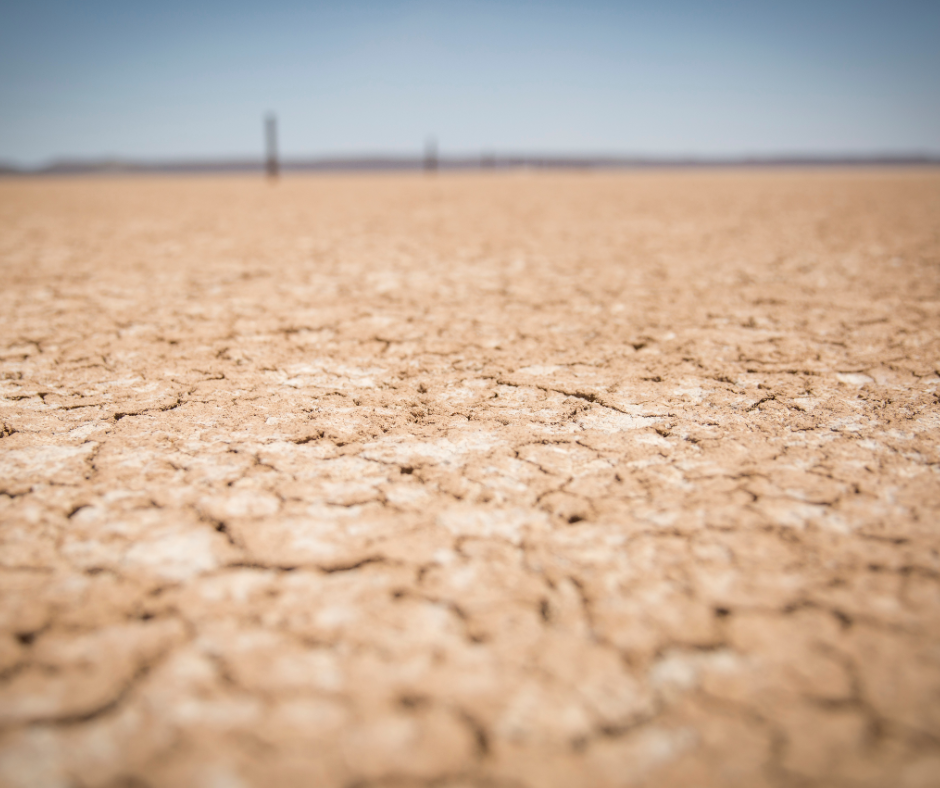Overseas aid and the complexities of compassion
Karen Kilby is Bede Professor of Catholic Theology and also serves as trustee for overseas aid charity CAFOD, Catholic Agency for Overseas Development.
Giving on impulse is natural, and is often effective; but if you can match this with thoughtful generosity it will make a greater difference.

On a recent trip to East Africa I learned that camels’ milk stays fresh longer than the milk from cows, and that camels and goats do better than cows in a drought because they eat not only grass but also leaves. I took this in as we were driven through an eerily parched landscape, punctuated by the carcases of dead camels. A few looked to have collapsed within the last day, but most were long gone, their skeletons picked clean. We saw dead donkeys as well, and heard that nearly all the goats had perished.
I was on a visit, as a Cafod trustee, to Marsabit, in the north of Kenya, towards the Ethiopian border. What I was seeing was one facet of a huge – and hugely underreported – humanitarian crisis across an area that includes Somalia, Ethiopia and South Sudan as well as Kenya. This part of our planet is experiencing an extraordinary level of drought, year after year of failed rains. Perhaps it is being ignored because a slowly unfolding calamity isn’t as dramatic as an earthquake, a tsunami or a military invasion. And perhaps we think of drought in Africa as old news. In fact this drought, whose severity is almost certainly related to climate change, is worse than the drought of the 80s. In the decades since then people have become better able to survive a number of years of drought. But the situation now has reached the point of absolute crisis.
Travelling to Marsabit with Cafod
Cafod asks its trustees to travel roughly once every three years to meet its partners and the communities they work with. This remains a priority even as it seeks to pare back its flights overall by 50%. And so it was that instead of thinking about the best way to explain medieval scholasticism to my students, I found myself travelling through a desolately dry but beautiful landscape thinking about water and camels and pastoralists. I also found myself thinking about the complexities of compassion.
Marsabit, the largest county in Kenya, is sparsely populated. It has persistently been neglected by the national government. There aren’t many votes to be had there. But concerted advocacy has brought about the construction of a paved road all the way to Marsabit town and on to the border with Ethiopia, and the first nine hours of our journey from Nairobi were pretty easy. In fact the road was empty. We saw no lorries carting emergency supplies, no logos of the various humanitarian agencies. The Cafod manager I was travelling with, who was making the visit to Marsabit for the first time, was shocked.
She had assured me that, in contrast to the 80s, there is no longer the danger of mass death by starvation. There are better systems of humanitarian relief in place. While suffering and loss are still to be feared – children experiencing malnutrition and all its life-long consequences, communities driven into destitution – death on a mass scale is no longer likely. But by the end of our second day, she had lost her confidence. We had heard too much about a situation of absolute desperation, and we had seen no signs of the other humanitarian agencies she would have expected to be there.
When the animals die, their only source of livelihood is gone: there’s nothing to eat, nothing to sell, nothing to do.
Professor Karen Kilby
The danger of compassion fatigue
Though their situation was desperate, people spoke to us with a grace, generosity and eloquence I found extraordinary. We were thanked for coming all this way to be with them. We were thanked for the support that Cafod had already offered through Caritas Marsabit, the humanitarian wing of the local diocese. Their herds, except for a few goats, were gone. For these pastoralists, their animals represent employment for the youth who do the herding, food in the form of milk and meat, cash when sold, and savings for when times are hard. When the animals die, their only source of livelihood is gone: there’s nothing to eat, nothing to sell, nothing to do. People concluded their stories with a succinct account of where the situation left them – in anxiety, in shock, but with a hope that someone would see and take account of their situation. With great dignity and stoicism, they are waiting to be seen.
It is very hard to listen to these stories, told with such clarity and precision, and not to have a visceral compulsion to do something immediately for the particular people in front of you. New Testament Greek has a nearly unpronouncable word σπλαγχνίζομαι (splagchnizomai), which means something like “having one’s guts twisted”. This churning in the guts is what the father experiences when he sees his prodigal son returning, what Jesus often feels towards the crowds, what happens to the good Samaritan when he sees the man by the side of the road. It’s usually translated as “compassion”.
It is a response any of us would have. But there is not only a danger of compassion fatigue (drought in Africa? again?), but a danger in another direction. The suffering of the other makes me suffer, and I want immediate relief, for myself as much as for them. There’s the possibility of too impulsive a reaction to this visceral moment of compassion, of acting without attention to the dignity of those who are suffering, and without understanding all the factors involved in addressing a situation. So in this moment we had simply to listen, to give all the attention we could muster, to offer our thanks, to say that we had heard, that we had seen, that we would tell others. Or rather it was my companion who had to do all this – I was pretty close to mute.
I’ve come to think that alongside impulse buying, there is such a thing as impulse giving. I see the report of a tragedy, it moves me, I make a donation.
Professor Karen Kilby

Impulse giving versus thoughtful generosity in overseas aid
I’ve come to think that alongside “impulse buying” there is such a thing as “impulse giving”. I see the report of a tragedy, it moves me, I make a donation. That’s fine – we see or read something, and we give to relief for the earthquake in Syria or Turkey, or to support Ukrainians in need, or even to help a little girl go to ballet school. And the giving makes a real difference. It’s harder to match our impulse giving, if we are people who can afford to give, with something more considered – to give to a humanitarian crisis that is not in the news, or give to the core funds of an agency you trust, which will be working on what is out of the news cycle as well as what is in it. But in the end that’s the giving that makes the greatest difference.
The need, in East Africa and elsewhere, is great, and growing greater. I pray God gives us the grace to respond.
Find out more
- This article is published in The Tablet on 30 March 2023: Overseas aid and the complexities of compassion.
- Karen Kilby is Bede Professor of Catholic Theology in the Department of Theology and Religion at Durham University and a trustee of overseas aid charity CAFOD, Catholic Agency for Overseas Development. To find out more about Karen, visit her profile.
- Our Department of Theology and Religion is ranked 6th in the world in the QS World University Rankings by Subject 2023 and is uniquely situated on a World Heritage Site and right next to Durham Cathedral.
- CAFOD, Catholic Agency for Overseas Development is an international overseas aid charity providing practical help to people living in poverty, regardless of their religion or culture.
- Learn how small doses of solitude can be beneficial, according to Dr Delali Konu, Pearl Tshimbalanga and Dr Thuy-vy Nguyen of our Department of Psychology.
